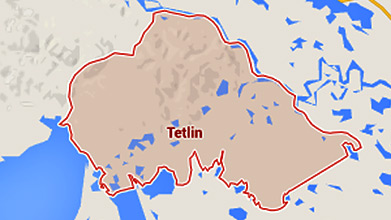In January of 1959, Paul Milanowski moved to Alaska with his wife and two young children. They were sent by Wycliffe Bible Translators to minister among the Athabascan tribe of native Alaskans in the small village of Tetlin (population: 100). At the time, Tetlin couldn’t be reached by road; the Alaskan Highway was at least 10 miles away as the crow flies and most people still used sled dogs as their primary mode of transportation.
Two years earlier in 1957, Paul and Trudy had attended Urbana seeking additional insight as to how the Lord wanted them to serve. Urbana 57 was a great confirmation of their call, but their path to the mission field had begun seven years earlier.
It was 1950 and the Korean War was just erupting when Paul received his draft notice. He was shipped out from Detroit to Fort Sheridan, Illinois where he was to receive his assignment. While in a room waiting for his assignment, he ran into his old InterVarsity staff worker, now a captain in the Army Reserves. “In the sovereign grace of God, there was Cleo Buxton.” Buck, as he was called, spoke to the officer handing out assignments and saw to it that Paul was given a Military Occupational Specialty and was handed a number commensurate with his engineering degree. “What a marvel that was, and what a blessing to me as a lowly private. It was an incredible moment of God’s grace.”
Paul spent his service with the Army at the Yuma Test Station in Arizona doing automotive engineering work. While in Arizona, Paul and his new wife Trudy got involved in a ministry to the Cocopah Indian tribe. Eventually, they were asked to lead the program—which was basically telling stories from the Bible through a flannel graph presentation translated by the tribe’s medicine man, Augustine. While Augustine was always very kind and cooperative, because neither he nor Trudy knew the language, they had no idea whether Augustine’s translations were theologically accurate. He and Trudy became convinced that effective ministry would require them to learn the language of the people to whom they were hoping to minister.
After his tenure with the Army, Paul enrolled at the Detroit Bible College. Over the next three years he worked for Chevrolet, went to school full-time, and became a father twice over. It was a busy season for his family. And when they finally arrived in Alaska to translate the Bible into the Athabascan language, the going wasn’t easy, either. His family was beset with health issues, particularly his wife and his daughter, who was born after arriving in Alaska. And for all the relationships that they built, the acceptance they garnered from the people in the village, and the deep love and connection they developed with the people they lived with for so long, they never saw anyone come to faith in Jesus. “I wish I could tell you that there were a lot of people responding to the gospel, but I can’t tell you that.”
Trudy passed on in 1994 and Paul continues to work with Wycliffe translating the New Testament, now from Michigan. Mainly because of the health issues that his family has dealt with over the years, Paul hasn’t gotten as far in the translation as he once hoped. “I’ve completed one third of the New Testament—that’s all we’re going to be able to do. We only have one life to live and I’m running out of years. I’m 86 now.”
“I’ve completed one third of the New Testament—that’s all we’re going to be able to do. We only have one life to live and I’m running out of years. I’m 86 now.”
He’s disappointed, but not disheartened; God is sovereign. “We responded to God’s leading with utmost confidence that: One, he called us; Two, where he guides, he provides; And three, that he would be faithful to his call based on the principles laid out in 1 Thessalonians 5:24 ‘He who calls you is faithful; he will surely do it.’”
Paul has led a remarkable life, with all the ups and downs, and moments of disappointment and satisfaction. Through it all, Paul has been faithful to God’s call on his life. And he is grateful. Grateful for the many ways that God has been present in his life, has shown him grace, and has used Paul to do his work and bring about his Kingdom.
And God’s mission will continue; God will raise up others to share in the joy of his mission. There’s more translation to be done.
